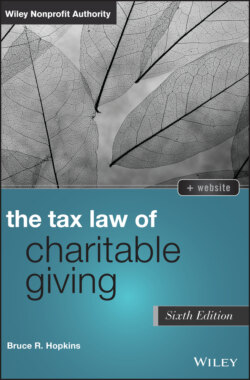Читать книгу The Tax Law of Charitable Giving - Bruce Hopkins R., Bruce R. Hopkins, David Middlebrook - Страница 91
§ 4.10 CONTRIBUTIONS OF PROPERTY SUBJECT TO OPTION
ОглавлениеA person may own an item of property and create an option by which another person may purchase the property at a certain price at or during a certain time. An option may be created for or transferred to a charitable organization. There is no federal income tax charitable contribution deduction, however, for the transfer of property subject to an option to a charitable organization. Rather, the general rule is that the charitable deduction arises at the time the option is exercised by the charitable donee.48
Thus, the transfer to a charitable organization of property subject to an option by the option writer is similar to the transfer of a note or pledge by the maker (see previous discussions). In the note situation, there is a promise to pay money at a future date; in the pledge situation, there is a promise to pay money or transfer some other property, or to do both, at a future date. In the option situation, there is a promise to sell property at a future date.
These rules were interrelated by the IRS with the private foundation restrictions49 in an instance involving a pledge by a corporation of an option on its common stock to a private foundation. The option document permitted the foundation to transfer the option to one or more charitable organizations, but the foundation decided not to exercise the option. The corporation was a disqualified person with respect to the foundation,50 and the transaction would have been an act of self-dealing.51 Thus, the foundation was to sell the option, at its fair market value, to an unrelated charitable organization. The IRS ruled that the corporation will be entitled to a charitable contribution deduction in the year the charitable organization exercises the option and that the amount of the contribution will be the excess of the fair market value of the stock at the time the option is exercised over the exercise price.52
A charitable deduction can also arise when the option expires. In one instance, an S corporation executed a deed, contributing a tract of land to a charitable organization; the corporation retained an option to repurchase the land for a nominal amount. The IRS concluded that there was more than a remote possibility that the option would be exercised. The gift was made in 1993; the option was set to expire in 1995. For 1993, each of the shareholders of the corporation claimed a charitable contribution deduction for their share of the fair market value of the property. The IRS, however, determined that, because of the option, there could not be charitable deductions for 1993, but that the deductions could be taken with respect to 1995.53
